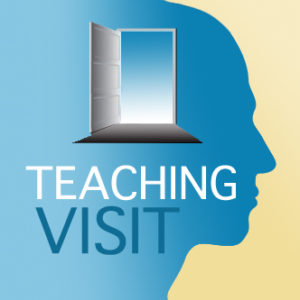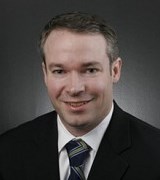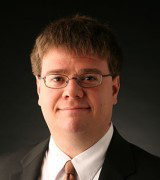teaching visits fall 2013 (archived)
 the teaching visits program is an important mechanism by which the cft promotes collaborative inquiry and reflection. specifically, the teaching visits program provides case-based opportunities for vanderbilt teachers to consider choices they have when constructing their classes.
the teaching visits program is an important mechanism by which the cft promotes collaborative inquiry and reflection. specifically, the teaching visits program provides case-based opportunities for vanderbilt teachers to consider choices they have when constructing their classes.
a small group of visitors observes a host’s class on a selected day and then engages in an hour of conversation about the instructor’s strategies. these visits provide fodder for the critical reflection so essential to the ongoing process of improving teaching, and thus are among our most valuable and helpful events. they are great opportunities for vanderbilt teachers to observe directly and then discuss various forms of teaching across the disciplines, building collegiality and expertise around inquiries into teaching and learning.
we offer two types of teaching visits:
- teaching visits for faculty, in which instructors open their classes to a small group of their colleagues on a selected day, and
- teaching visits for cict participants, in which instructors open their classes to a small group of graduate students and post-docs who are completing the cft’s certificate in college teaching.
if you are interested in hosting a teaching visit or have any other questions about the program, please contact the cft’s cynthia brame.
katherine l. friedman
 associate professor of biological sciences
associate professor of biological sciences
bsci 210: principles of genetics
kathy friedman takes a highly interactive approach to teaching genetics, and has always found review sessions to be the best learning experiences for her students. this semester, she is trying to extend the review session model by “flipping” some of her genetics lectures. collaborating with bold fellow tessy sebastian, kathy has developed videos, quizzes, and practice problems that introduce students to basic concepts before coming to class, allowing them to spend class time focused on more advanced applications of the concepts. this teaching visit will provide an opportunity to discuss how kathy and tessy prepared the online materials as well as the students’ and instructor’s response to the flipped class experience.
date: thursday, january 16th
class time: 8:10-10:30am
location: mrbiii 1220
facilitator: cynthia brame
discussion location: mrb iii 2210 (mosig conference room)
faculty of any rank register now
edward k. cheng
law 735: evidence
edward cheng’s research focuses on scientific and expert evidence, and the interaction between law and statistics. law 735: evidence is a comprehensive survey of the federal rules of evidence, the rules that regulate the flow of information to juries in the vast majority of trial courts. professor cheng uses a variety of teaching methods, including legal education’s signature pedagogy, the socratic method, as well as lectures, discussion, role-playing, and case studies. cheng varies his methods from class to class to keep the content—typically thought to be somewhat dry—fresh and lively and, more importantly, to help students see and understand how the rules of evidence are applied as real-time weapons used to craft arguments in court.
date: wednesday, february 5th
class time: 10:50am-1:00pm
location: moore room (law school)
facilitator: derek bruff
discussion location: moore room (law school)
faculty of any rank register now
william collins
 terence e. adderley jr. professor of economics & professor of history (by courtesy) and department chair
terence e. adderley jr. professor of economics & professor of history (by courtesy) and department chair
econ 266: topics in the economic history of the us
professor collins is an economic historian whose research concentrates on twentieth-century labor market and urban history. his recent work has studied changes in racial disparities in earnings and educational attainment, inter-regional migration, the economic impact of urban riots, the history of urban renewal programs, and the origins of the baby boom. in his course: topics in the economic history of the us, dr. collins offers an analysis of major issues and debates in american economic history.
date: thursday, march 20th
class time: 9:35-11:50am
location: buttrick hall, rm 102
facilitator: rhett mcdaniel
discussion location: buttrick hall, rm 212
faculty of any rank register now
kevin d. murphy

andrew w. mellon chair in the humanities and
professor and chair of history of art
hart 229: 19th century architecture: theory & practice
professor murphy opens up his 19th-century european architecture course to a small group of visitors who’ll observe a lecture and discussion of some principal monuments of the time. his students will apply what they’ve learned in a final project in which they analyze an historical neighborhood in nashville. how does he prepare them for this application, and what will those projects look like? welcome kevin to vanderbilt by visiting his course with the cft.
date: thursday, march 20th
class time: 11:00am-1:30pm
location: cohen 203
facilitator: nancy chick
discussion location: tba
faculty of any rank register now
to register for these visits:
- click the “register now” link in the descriptions above.
- complete the registration information.
- when the visit approaches, you will receive a confirmation e-mail that includes a syllabus and a discussion guide.
- if you register but find that you are unable to attend, please let us know. please be mindful that space is limited.
teaching visits for cict participants
the cft thanks the following faculty members for volunteering their time and opening their classrooms to the participants of the certificate in college teaching.
bennett landman
 assistant professor o electrical engineering & computer science
assistant professor o electrical engineering & computer science
eece 252: signal processing & communication
this course examines am and fm modulation. advanced topics in signal processing will also be treated.
date: tuesday, january 28th
class time: 2:35-4:50pm
location: feathering hall, rm 211
facilitator: cynthia brame
discussion location: feathering hall, rm 239
this teaching visit is open only to participants of the certificate in college teaching program
paul stob
 assistant professor of communication studies
assistant professor of communication studies
cmst 210: rhetoric and civic life
to function properly, democracies require an engaged citizenry. but for citizens to engage their communities, societies, and governments, they need to understand how language, symbols, ideas, and appeals shape perceptions, facilitate judgments, and encourage action. as a result, this course is designed to help you understand the intersection of rhetoric and civic life. throughout the semester we will study the dimensions of civic engagement from a rhetorical perspective. in the end, i hope you’ll appreciate the problems and possibilities of democratic citizenship, and i hope you’ll be prepared to engage civil society on your own terms. given these objectives, you’ll find this course to be reading and writing intensive. moreover, you’ll probably be required to think, write, and speak in ways that are unfamiliar or uncomfortable. but that’s all part of becoming an educated, articulate, engaged citizen. i’ll spend the first half lecturing (or something close to lecturing), which is accompanied by ppt slides and any audio or video that seems pertinent. then we’ll spend the second half of the class analyzing a text together. on the day the cft visitors come, we’ll be talking about john brown’s address to the court on november 2, 1859 (shortly before his execution).
date: thursday, january 30th
class time: 11:00am-1:15pm
location: 1801 edgehill ave (above the curb center) rm 225f
facilitator: nancy chick
discussion location: 1801 edgehill ave (above the curb center) rm 225f
this teaching visit is open only to participants of the certificate in college teaching program
phillip l. ackerman-lieberman
 assistant professor of jewish studies & law
assistant professor of jewish studies & law
js180w: introduction to jewish studies
phillip i. ackerman-lieberman is assistant professor of jewish studies and law, assistant professor of religion, and affiliated assistant professor of islamic studies and history. his research focuses on the economic, social, and legal history of the jewish community in the lands of islam in the medieval period. this course is an introduction to judaism and jewish history through philosophical, political, social, and artistic perspectives; biblical studies; antiquity and the medieval world; modern and contemporary experience; and culture, philosophy, and literature.
date: thursday, february 6th
class time: 9:35-11:50am
location: furman hall, rm 311
facilitator: nancy chick
discussion location: jewish studies library (off buttrick hall 140)
this teaching visit is open only to participants of the certificate in college teaching program
kimberly bess
 assistant professor of human & organizational development
assistant professor of human & organizational development
hod 1200: understanding organizations
kimberly bess, assistant professor of human and organizational development, is the recipient of a 2012 harold love outstanding community involvement award. her primary focus is community, organizational, and social psychology and organizational development. hod-1200: understanding organizations is an introduction to theory and research on human behavior in organizations. aimed at providing a framework for understanding the dynamics of organizations around the basic issues that confront all organizations (e.g., goal setting, work performance, leadership, decision making, managing change).
date: tuesday, february 11th
class time: 11:00am-1:15pm
location: wyatt center 201
facilitator: derek bruff
discussion location: tba
this teaching visit is open only to participants of the certificate in college teaching program
robert joel barnett
 associate professor of the practice of mechanical engineering
associate professor of the practice of mechanical engineering
me 243: design projects
joel barnett loves to help his students learn to think like engineers. his classes always include projects that ask the students to generate a product that responds to a client’s needs—whether that client is a fictional roman emperor requesting a new catapult design or a nashville company requesting an improved manufacturing process. this semester, joel is teaching me 243, in which senior mechanical engineering majors complete design projects for various companies. this visit will provide an opportunity to see how joel interacts with students as they present their progress and to discuss how he integrates mentoring approaches into a credit-bearing class.
date: tuesday, march 11th
class time: 2:35-4:50pm
location: feathering hall, rm 134
facilitator: cynthia brame
discussion location: tba
this teaching visit is open only to participants of the certificate in college teaching program
claudia rei
 assistant professor of economics & history
assistant professor of economics & history
econ 271: economic history of europe
professor rei is an economic historian whose research concentrates on early modern europe at the onset of overseas merchant empires. she is currently investigating the origins of the different organizational forms across merchant empires, and also analyzing the consequences of such institutional arrangements, using archival data on labor compensation and naval technology. this course examines sources of western european economic progress. organization of overseas merchant empires, origins of the industrial revolution, the role of property rights, demographic patterns, and changing living standards.
date: wednesday, march 26th
class time: 4:45-7:00pm
location: calhoun 423
facilitator: nayana bose
discussion location: calhoun 423
this teaching visit is open only to participants of the certificate in college teaching program

